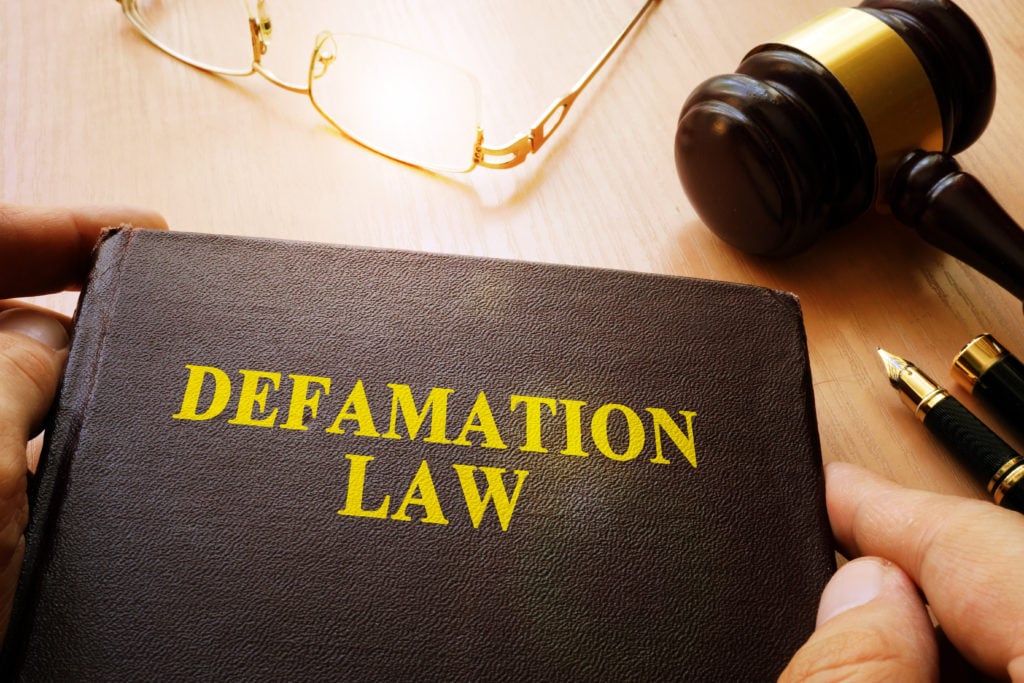
What is the Defamation of characters?

Defamation of character is defined as a false statement of fact that causes the victim some type of harm.
You can pursue a civil claim for defamation of character. This means filing a tort lawsuit in hopes of recovering monetary compensation for the damage done to you.
This guide explains what defamation of character is, what you must prove to make a successful claim and what types of compensation may be available to you if your character has been defamed.
Legal Definition of Defamation of Character
Each state establishes its own definition for defamation of character. In general, however, it occurs when:
- A false statement is made to a third party
- The statement is presented as fact
- The statement causes reputational damage
Defamation of character can take two different forms.
- The false statements can be made orally, in which case you would pursue a claim for slander.
- The false statements can be made in writing, in which case you would pursue a libel claim.
You can file a civil lawsuit for defamation of character, which allows you to recover monetary compensation for the libel or slander you have experienced that caused harm to your reputation.
In some states, defamation of character can also be a criminal offense, although these types of cases are rarely prosecuted.
What Do You Need to Prove in a Defamation of Character Claim?
If you wish to recover compensation for defamation of character, you file a civil lawsuit as the plaintiff. You have the burden of proving your case. Typically, the standard of proof is preponderance of the evidence, so you have to show that more likely than not what you are saying is true and the harm you experienced actually occurred.
Although the rules vary slightly by state, the elements of a defamation case you need to prove include the following:
- A false statement of fact was made. Statements of opinion, parody and true statements cannot be grounds for a defamation claim.
- A third party heard or read the defamatory statement. The defamation could have occurred in any form, including a podcast, spoken statement, text message, social media post or publication.
- The defendant who defamed you was either negligent or acted with actual malice in determining whether the statement was true. The negligence standard applies if you are a private figure. The actual malice standard applies if you are a general or limited public figure.
- The statement was not privileged. Certain statements are afforded extra protection and can’t give rise to a defamation claim. An example includes a statement made under oath in a court of law.
- You experience harm due to the defamation. You must prove that you were somehow damaged by the false statements made by the defendant.
You can go to court and present evidence of these elements of your claim. If the court sides with you, you can recover compensation. You could also potentially resolve your case through a settlement if the defendant or their insurer makes you a fair settlement offer in exchange for giving up future claims.
Actual Malice vs. Negligence
If you are a private figure and someone makes a false statement about you, you must prove they were negligent in determining the truth of the statement in order to recover compensation for defamation of character. This means you must show that a reasonable person would have been more prudent in ascertaining whether the statement was fact or fiction.
If you are a public figure, though, the standard is higher. Thanks to a case called New York Times vs. Sullivan, an actual malice standard applies. You must show that the defendant who defamed you knowingly published a false statement or acted with reckless disregard in finding out if it was true before publishing.
This actual malice standard applies in all situations for general purpose public figures, which includes politicians and people who hold positions of power and influence such as movie stars or sports stars. Private people can become limited purpose public figures if they take a position in a particular controversy or high-profile situation.
Defamation per se
In a typical defamation case, you must specifically show a statement is defamatory and harmful.
But, under a legal document called defamation per se, the nature of the statement is such that it is presumed to be defamatory. Examples include claiming someone has committed adultery, has a contagious infectious disease, committed a crime or engaged in behavior incompatible with their business or profession.
Compensation for Defamation of Character
If you can successfully show defamation of character occurred, you can be compensated for actual financial losses, as well as for additional damages you incurred due to being defamed. Compensation also includes payment for:
- Lost earning power or missed business opportunities
- Expenses associated with repairing your reputation, such as online content removal
- Medical payments if you need treatment due to the impacts of the defamation, such as therapy for mental distress
- Compensation for non-economic losses such as emotional distress, mental anguish, shame and diminished quality of life
You must prove your damages in a defamation of character case, which can be one of the more challenging parts of this type of claim.
Punitive Damages
In a limited number of situations, punitive damages may be available in a defamation of character case. These are intended to punish the defendant’s behavior and deter similar misconduct in the future.
Some states have limits on punitive damages, and they are typically awarded only in circumstances where a defendant was found to have behaved outrageously.
Get Help If You Are a Victim of Defamation of Character
If you were harmed by defamation of character, an experienced attorney can help you to gather evidence, file a lawsuit and prove your claim. Contact a libel or slander lawyer today to get the assistance you need getting the compensation you deserve.
Copyright: What Is Defamation Of Character? Definition & Examples – Forbes Advisor

